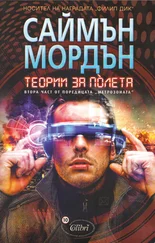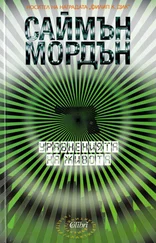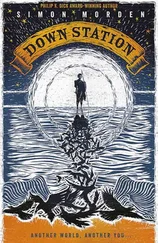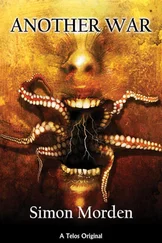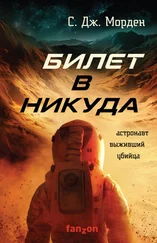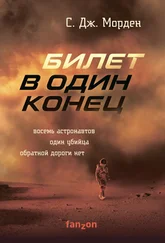Pif, her back to Petrovitch, poured boiling water on the coffee granules. “So what happened to him? The American?”
“He went home. He got married. He has kids, two of them, both genetically enhanced. He got his new life. And I got mine. I think, under the circumstances, we both got a good deal.”
The spoon went round and round the mug, making little scraping noises as it went. “You’ve never been to university.”
“Not until this one.”
“So how come you’re so brilliant at what you do?”
Petrovitch took it as a compliment. “Raw natural ability. I can’t claim credit for that. But I did a lot of reading—more than a lot. Not just magnetohydrodynamics, but across the field. There are problems that I find solutions for in the strangest places. You can’t know it all, but it helps if you know where to look.”
She brought both coffees over, and put one mug into his grateful hands. “None of this explains why you’re so willing to throw it all away.”
“Doesn’t it go some way to explain why I hold it lightly, though? The last few years have been a gift. I didn’t deserve this, this peace I’ve had, the space to do what I want without having to worry about money or guns. It’s over now. Even if Hijo and his assassins don’t get me, Chain will end up waving a pair of handcuffs and an extradition order at me.”
“It doesn’t have to be over. You can run again.”
“It was over the moment I grabbed Sonja Oshicora’s hand. The moment, I suppose, when I decided to stop running and spit in the face of destiny. This is meant to be, all the crap that’s happening. That I managed to hold it off for so long is a miracle in itself.” Petrovitch leaned over his coffee, strong, hot, bitter: she knew how he liked it. “Now’s the time to make a stand, no matter how suicidal it is.”
Pif sighed. She wasn’t convinced. “Is there no one who’ll miss you? You said you had a sister, a mother.”
“Not contacting them ever again was the price I had to pay for Boris leaving them alone. I never told them what I was doing, and they never asked. I disappeared. They thought I was dead, and I’ve given them no reason to suppose otherwise. Apart from that, no. I’ve made no friends, had no girlfriends, I’ve maybe a handful of acquaintances. No one’s going to miss me.” He took a mouthful of coffee, almost too hot to drink, and thought of his last sight of Sister Madeleine. “No one.”
“Then how are you different from Inspector Chain?” Pif balanced her mug on a rough pile of his lab notes and knelt down in front of the desk. She rested her elbows on the edge and cradled her face in her hands.
“He was given the responsibility and powers of a policeman. What’s he done with them? I got given the single opportunity to save Dalton, and what did I do? That he’s walking around, living and breathing, spawning little Reconstructionists, is down to me. No one else. So yeah. I’m different from that lazy sooksin .”
“Is this what it’s like, then?” she said, eyes closed, dreaming. “People like us, we think differently, don’t we? We are different. We do all the things that others do. We go out to parties and concerts, we go to conferences and drink and talk, we play music and games and we laugh and cry. But when it comes down to it, we don’t actually need anyone else. We’re happy doing what we do and having obligations interferes with that. Does that make us selfish, or something else?”
“I don’t know. To them, I guess it is selfish. Me? I just have such a monstrous sense of self, I don’t need to feel love. I don’t even feel lonely.” He watched Pif’s hair beads swinging slightly in time with her breathing. “Sometimes I wonder what it might be like. To be with someone, well, who isn’t me. And sometimes I think we don’t even need ourselves. What’s most important is to find out whether we’re right or not.”
“So what are you going to do?”
“I’ve run out of places to go. I can’t go home. I can’t travel on the tube with the guns. I don’t think I can walk to Regent’s Park: it’s madness on the streets today. And I still don’t think any of that was my fault.” Petrovitch swilled his coffee around inside his mug and watched the play of light against the black surface. “It’s against the rules, but I’ll camp down here tonight and meet Marchenkho in the morning.”
“I’ve got a better idea,” said Pif. “Come back to my room. I’ll cook something. We’ll break open a bottle of something pretending to be wine. We can talk about work and play computer games until it’s stupid late, and you can crash out on the couch. Once I’ve done some tidying up, that is. I’m not used to guests.”
Petrovitch looked up. “That would be… that would be nice. You have remembered that Hijo is trying to kill me?”
“Let him come. There are paycops on the door, and if he bribes them, well, we’re ready.”
“We?”
She got to her feet and pulled the Jericho out of her bag. Then in a few deft moves, she’d stripped it down to its component parts. “You see,” she said, “where I grew up, in the expensive part of Lagos, we had to protect ourselves from people like you.”
She reassembled the gun just as efficiently and, when she was done, she assumed a shooter’s stance; legs apart, arms braced, good eye over the sights.
“I wasn’t expecting that,” said Petrovitch.
“And neither will they.” She flicked the safety catch on and dropped the gun back in her bag. She smiled.
He woke with a start, in unfamiliar surroundings. The blanket wasn’t his, and neither were the cushions he’d left slack-jawed drool on. The Norinco was under his left hand, resting on his belly.
He was at Pif’s. She was at the other end of the sofa, in an attitude much like his, but a lot less troubled. One of her feet was jammed between his hip and the upholstery, and her hand draped artfully from under her stark white duvet, pointing at the—her, he supposed now—Jericho.
The gun had joined the debris on the floor. Stained plates, mugs marked with dribbles of red wine, two handsets for her games console, shoes, socks, their trousers, her jumper, paper, books, disks, cartridges, memory sticks, coins, paperclips, cards.
There had to be a clock somewhere—at least something with a built-in clock, when Petrovitch’s myopic search of the walls revealed nothing. His glasses had to be close at hand, but he was reluctant to swing his legs off their perch in case he trod on them.
He patted the carpet, found nothing, then reached back over his head and knocked against a low table. There. He jammed them on his face.
The blank screen of the TV held no clues, but at least he could see the remote. He snagged it and pressed the on and mute buttons simultaneously.
Pif stirred, wrinkling her nose and creasing her forehead.
He couldn’t get a channel. He scrolled through all of them, one to one hundred, and there was nothing but snow.
“Pif?” he said, touching her toes. “Pif, are you on cable or broadcast?”
Her eyelids flickered open, and she made smacking noises with her mouth. “Cable.”
“It wasn’t off last night. It is now.”
“Oh.” She started to close her eyes again. “Do I remember you saying that it wasn’t your fault?”
“It’s not. I don’t see how it can be.”
“Can’t you call your bot-net off?”
“Yeah. I could, if I had access. If I had my rat, I could get on through a satellite.” He still didn’t know the time. “The attack should have fallen apart by now.”
“Worried?”
“Some. And not just about the netcops coming calling.” Petrovitch cleared a space for his feet and pulled the blanket around him. He put his gun on the table. “At least Hijo didn’t make an appearance.”
Читать дальше
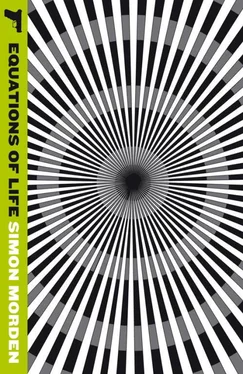
![Саймон Морден - Билет в никуда [litres]](/books/388091/sajmon-morden-bilet-v-nikuda-litres-thumb.webp)
![Саймон Морден - Билет в один конец [litres]](/books/395533/sajmon-morden-bilet-v-odin-konec-litres-thumb.webp)

